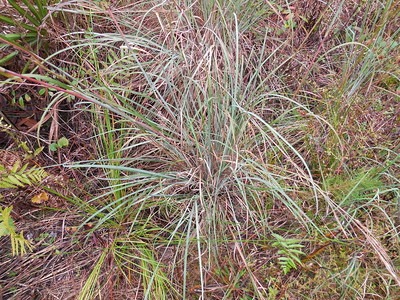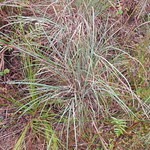
GM/Biotech Crops Report – April 2021
8th April 2021- GM/Biotech Crops Monthly Reports (BELOW) form part of BCPC’s free three-tier Biotech Crops Info service.
- This service also includes a weekly round-up of news from around the globe – see BCPC Newslink GM Crops section.
- Plus – Free access database on over 300 GM/biotech products covering 23 crops in the global market visit BCPC’s GM/Biotech Crops Manual – Register here for free access.
- Already registered? Click here
GM/Biotech Crops Monthly Report April 2021
Bluestem grass treatment

Researchers at Hiroshima University have discovered that extracts of the invasive weed Bluestem Grass contains flavonoids that could help treat patients with cancer or type 2 diabetes.
Pic: Javier Alejandro
Full story
Gene therapy begins
Babies born with spinal muscular atrophy can now be treated with a drug that mimics the missing SMN1 gene and, providing it is taken early in the baby’s life (i.e. within 6 months of birth), could offer a lasting cure. It has been approved by NICE after they agreed a discount on the £1.79 million that a treatment costs and could be offered to around 80 babies per year.
Full Story.
Better bread
Rothamsted Research has produced a gene-edited bread wheat that is less likely to produce acrylamide when toasted and therefore carries a lower risk of causing cancer.
Full Story
New gene editing technique
The University of Chicago has developed a new technique of gene editing. The genes are still cut by the Cas9 enzyme but it is ferried to the site of the cut by engineered RNA molecules that can be programmed to make sequential cuts.
Full Story
Time to grow
Melbourne University has discovered the mechanism behind the circadian rhythm of plants and with this knowledge they think that they may be able to cause plants to grow more strongly in different situations and environments such as vertical gardens. This could allow increasd yields from crops grown in cities or in different latitudes.
Full Story
A new symbiosis?
Researchers at Utah State University have found that bacteria associated with the roots of wheat produce ‘outer membrane vesicles’ when the wheat is subjected to heat or drought stress and this helps the wheat survive the stress conditions by protecting the roots. Now they plan to see if they can strengthen this association in some way.
Full Story
Nebulisers against viruses
The Georgia Institute of Technology has used mRNA to code for Cas13a enzyme which, when inhaled into the lungs using a nebuliser, allows the Cas13a enzyme to cut the virus genome and stop it from reproducing more copies of the virus. Not only is this effective against 99% of flu viruses encountered in the last 100 years, it could also be effective against Covid-19.
Full Story
It’s life Jim
Bacteria have been found growing at several different locations on the International Space Station. They belong to the Methylobacterium group of species and seem to thrive in the extreme conditions in space. This group of bacteria are involved in nitrogen fixation, phosphate solubilisation, plant growth promotion, abiotic stress tolerance, and biocontrol activity against plant pathogens so could be very useful when trying to grow crops in space or on Mars.
Full Story
THE LATEST ADDITIONS TO THE GM/BIOTECH DATABASE ARE:
The latest approvals of biotech crops to report this month:
- V11 (potato with less asparagine and reducing sugars and with a reduced risk of black spot) approved for food use in Australia and New Zealand.
- New event – Z6 (potato with less asparagine and reducing sugars and with a reduced risk of black spot) approved for food use in Australia and New Zealand.
- New event – MON87429 (maize with tolerance of glufosinate, glyphosate, dicamba, 2,4-D and FOP herbicides) approved for food use in Australia and New Zealand.
- New event – GMB151 (soybean with tolerance of isoxaflutole herbicides) approved for food use in Australia and New Zealand.
- MON88701 (cotton with tolerance of glufosinate and dicamba) approved for cultivation in Australia.
- New event – DP202216 (maize with enhanced yield potential and tolerance of glufosinate) approved for food use in Australia and New Zealand.
FOR INSTANT ACCESS TO GM BIOTECH MANUAL CLICK HERE (Registration required)
Already Registered? Click here to access

